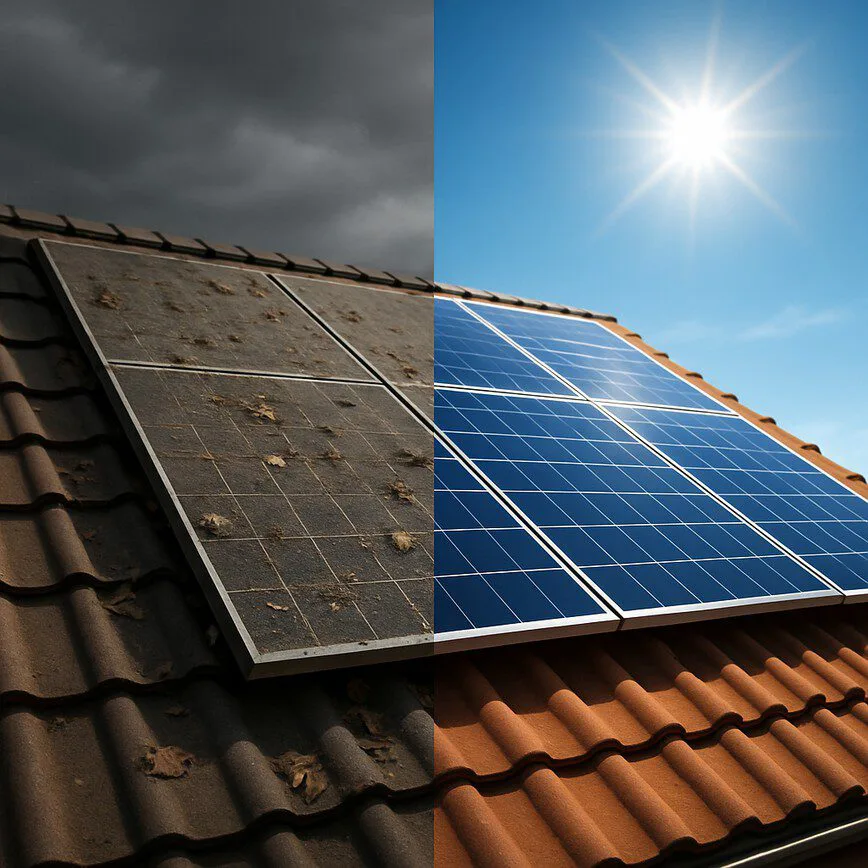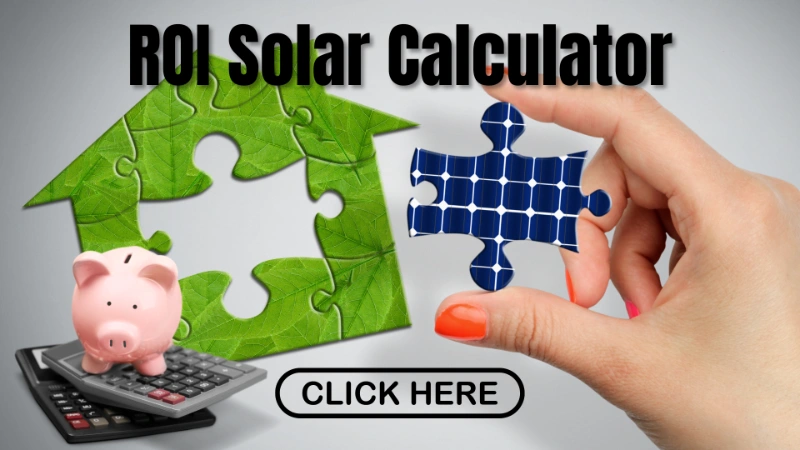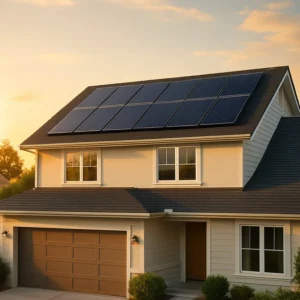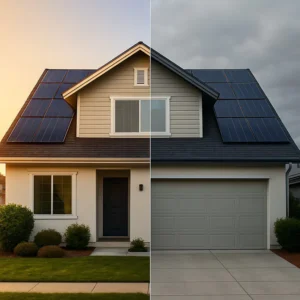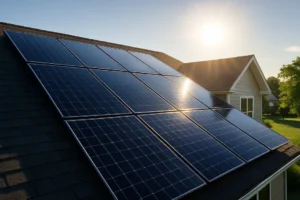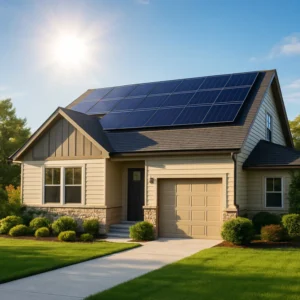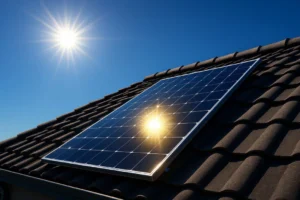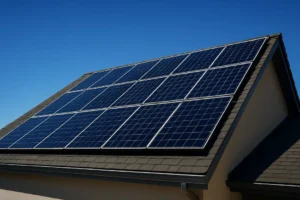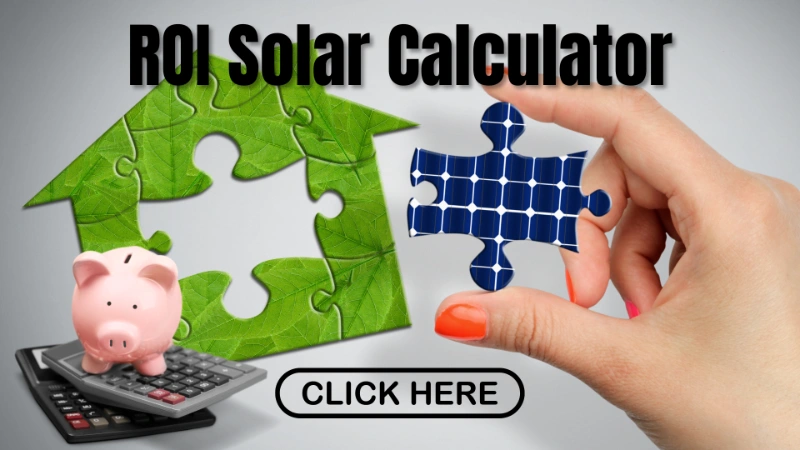You invested in a residential solar system to take control of your energy costs and reduce your carbon footprint. So, it’s incredibly frustrating when you open your utility bill and see it’s much higher than expected. If you’re asking yourself, “Why is my solar panel efficiency low?” or “Why is my electric bill so high with solar panels?”, you’re not alone. This is a common concern, and the good news is, there’s usually a clear reason—and a straightforward solution.
Table of Contents
At RenewGenius, we specialize in residential solar solutions, and our goal is to empower homeowners with the information they need. This troubleshooting guide will walk you through the common culprits behind poor performance and explain how to get your system back to peak efficiency.
First, How Do You Know Your Solar Panel Efficiency is Low?
Before diving into causes, let’s confirm the signs. You likely suspect a problem because of a high electric bill, but other indicators can pinpoint the issue:
- Higher-Than-Expected Utility Bills: This is the most obvious sign. If your bills are creeping up without a major change in your energy usage, your system isn’t producing as it should.
- Monitoring App Alerts: Most modern solar systems come with a monitoring app. Check it regularly. Does the data show a sudden or gradual drop in energy production compared to previous months or the same period last year?
- Visible Debris or Damage: A quick visual inspection can sometimes reveal the problem. Are your panels covered in dirt, leaves, or bird droppings? Do you see any cracks or damage?
Common Causes for Low Solar Panel Efficiency
Once you’ve confirmed a drop in production, it’s time to diagnose the cause. Here are the most frequent reasons your system might be underperforming.
Dirt, Dust, and Debris
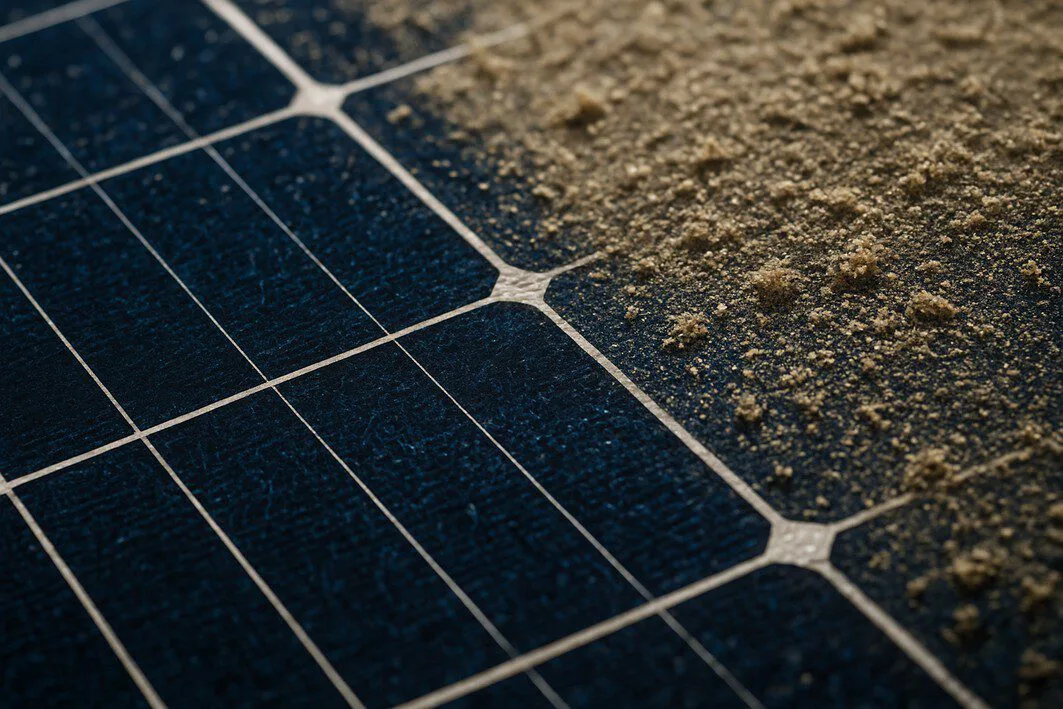
The simplest explanation is often the right one. A layer of dust, pollen, leaves, or bird droppings can significantly block sunlight from reaching the photovoltaic cells. Think of it like trying to see through a dirty window. Even a thin film can reduce your system’s output by 5-10% or more.
Shading Issues
When your system was installed, your provider should have accounted for shading. However, things change. Trees grow taller, a neighbor might have built a new structure, or a satellite dish could be casting a new shadow. Even partial shading on a single panel can sometimes impact the performance of the entire string of panels, drastically reducing overall efficiency.
Panel Age and Degradation
Solar panels are incredibly durable, but they do experience a slight, natural decline in performance over time. This is known as Light-Induced Degradation (LID). A quality panel typically degrades at a rate of 0.5% per year. While this is a slow process, an older system’s lower output could be due to natural aging. If you’re curious about your system’s expected output, our comprehensive solar knowledge base can help you understand performance benchmarks.
System Component Failures (Inverters and Batteries)
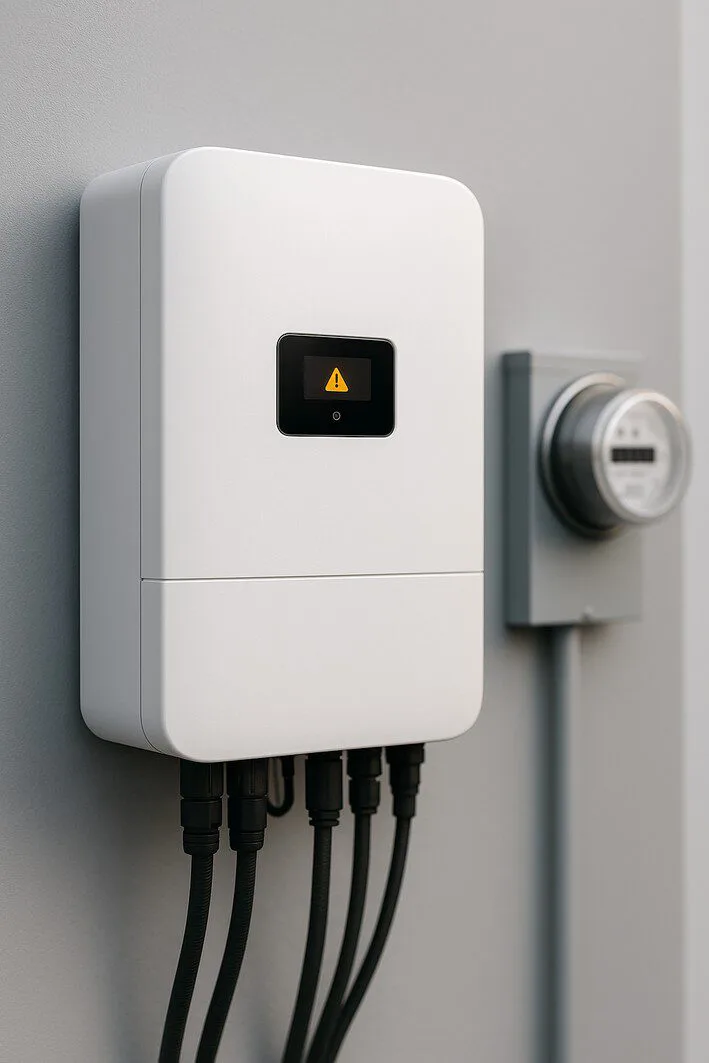
Sometimes the panels are working perfectly, but another part of the system is failing. The inverter, which converts the DC electricity from your panels into AC electricity for your home, is the most common point of failure. If your inverter isn’t working correctly, your system’s production will plummet or stop entirely. Similarly, if you have a solar battery, issues with its performance can affect how your home uses stored energy. Understanding these crucial essential solar products like inverters and batteries is key to diagnosing system-wide problems.
Extreme Weather and Physical Damage
Harsh weather like hail, heavy snow, or high winds carrying debris can cause microcracks, chips, or other physical damage to your panels. While often too small to see from the ground, this damage can interrupt the electrical connections within the panel and lead to a significant loss of efficiency.
How to Fix Low Efficiency and Get Your Savings Back on Track
Identifying the problem is the first step. Now, let’s talk about solutions.
The Importance of Regular Solar Panel Maintenance
The number one way to ensure peak performance is through proactive solar panel maintenance.
- Cleaning: For simple dirt and dust buildup, a thorough cleaning can restore your system’s efficiency almost immediately. While you can do this yourself with the right equipment, professional cleaning is safer and often more effective. We recommend a professional cleaning at least once a year, or more often if you live in a dusty or high-pollen area.
- Inspections: A professional inspection can identify issues you can’t see, like wiring problems, mounting issues, or shading that has developed over time.
When to Call for Professional Solar Panel Repair
While cleaning can be a DIY task, most other issues require expert help. You should call for professional solar panel repair if you suspect:
- Physical Damage: Cracked or shattered glass is a clear sign you need a professional.
- Inverter or Electrical Faults: If your monitoring system reports an inverter fault or you suspect an electrical issue, do not attempt to fix it yourself. This requires a certified technician.
- Widespread Performance Loss: If cleaning doesn’t solve the problem, it’s time for a professional diagnosis to check for more complex issues like faulty components or degradation.
Proactive Steps: Maximizing Your Solar Investment with RenewGenius
Dealing with low solar panel efficiency is stressful, but it highlights the importance of having a knowledgeable partner. At RenewGenius, our focus on residential solar solutions means we understand the unique challenges homeowners face.
We believe in empowering you. You can use tools like our ROI calculator to compare your current bills against what you should be saving, giving you a clear benchmark for your system’s performance. Our comprehensive solar knowledge base is always available to help you understand every aspect of your investment.
Don’t let a dip in performance sour your solar experience. Most issues are correctable, and with the right maintenance and support, your system can get back to generating clean, affordable energy for your home. If you’re concerned about your system’s output, contact our team today for an expert consultation.

